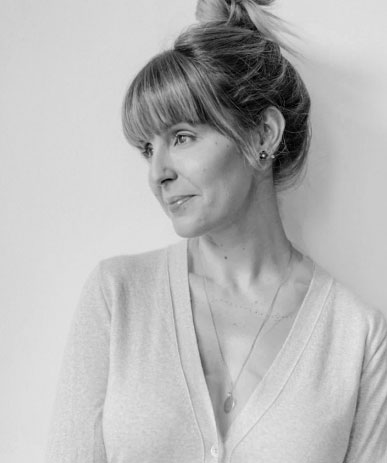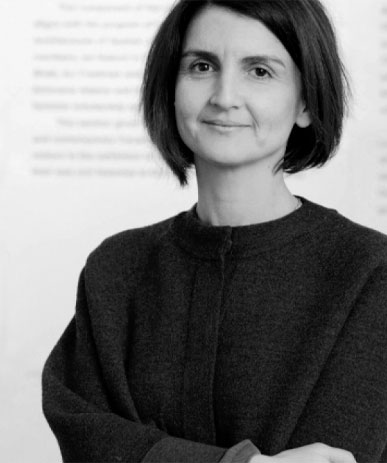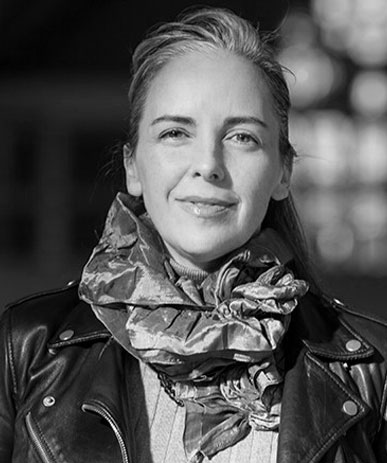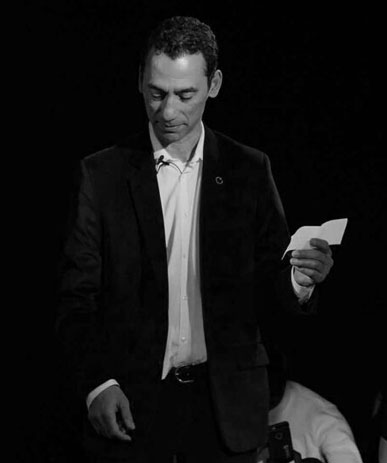INTERVIEWS
Julie Ann Carpini
Interviewer: Vanessa Sicotte
Language of interview: English
Country of practice: Canada
Profession: Not specified. Interviewee is a survivor.
Julie Ann Carpini, has participated in three restorative justice processes as a survivor. The encounters occurred in 2017 and 2018, occupying diverse spaces within a carceral institution. According to Carpini, the spaces inside the prisons provide a sense of safety for survivors, as well as a sense of accountability, since they reaffirm that those who committed the offences are serving their sentences. In addition, Carpini explains her preferences for certain temperatures, materials, and layouts of the space, and her predilection for visiting the sites prior to any restorative encounter.
During our conversation, Carpini tells us about her restorative justice experiences, including the spaces where they occurred, and the emotions related to those encounters. Her first experience was a face-to-face meeting with five people, in which the survivors had the opportunity to determine how the circle of participants would be organised. She explains how vital it was to be able to see the offender, as well as the exit door, because this configuration gave her a sense of security. In addition, she recalls the sensations caused by the low temperature of the space.
Her second experience included three face-to-face meetings inside a prison’s chapel. She describes the space as a bigger room with a high ceiling that provides a feeling of spaciousness, the ability to breathe, and a larger circle configuration. She describes the encounter with the use of a metaphor, saying that she felt as if she were leaving a prison in which she had felt trapped all her life. Lastly, she explains her third experience, which included a previous visit to the space (a large and bright classroom), and five group meetings between survivors and offenders. For Carpini, this was a very positive experience as the survivors work collectively to decide the layout of the meeting space, the preparation for the meetings, as well as providing support in each encounter.

is an author, speaker, columnist, and podcaster in the fields of architecture and decorative arts. She is completing her MA in Art History at Concordia University, Montréal, and holds a Bachelor of Commerce with a major in Marketing from John Molson School of Business. She studied Industrial Psychology in Los Angeles, California. Sicotte is the author of two published books on design (2015, 2018) published by Les Éditions Cardinal.

is a Colombian PhD candidate in the Department of Art History at Concordia University. She has a background in architectural design and community activism and holds a master’s degree in Building and Urban Design from the Bartlett School of Architecture in London, England. Her interests focus on socially-engaged art, social movements, collaborative activism in post-conflict scenarios, collectively-produced art, and art produced in relation to the built environment.

is a PhD candidate in Humanities at Concordia University. His research focuses on spatial agency, social aesthetics, youth narratives, and graphic representations of urban memory. He has published on the relationship between children, play, and public space in Cartagena, Colombia. He has also worked as an editor on literary projects, including Territorio Fértil, which received the María Nelly Murillo Hinestroza award for Afro-Colombian literature.

is Associate Professor and Canada Research Chair in Architectures of Spatial Justice (Tier 2) at the Peter Guo-hua Fu School of Architecture at McGill University, Montréal, Québec, Canada. Her research interests include low-income housing and participatory design, civil protest and urban design, and campus landscapes and race. Her publications include the co-edited book, Orienting Istanbul (2010) and solo-authored book, Istanbul Open City (2018).

is an artist and a professor of Art History at Concordia University. Her work focuses on women and the history of the built environment, urban landscapes, research-creation, and oral history. She has published on the spatial history of the suffrage movement, public art, gardens, and the politics of urban change. In addition to her research on the spaces of restorative and transitional justice, she is leading an oral history project on the urban memories of diverse Montrealers.

is Associate Professor in the Department of Theatre at Concordia University, Montreal (Quebec, Canada). He is also the second co-director of Concordia’s Centre for Oral History and Digital Storytelling. His latest publications explore listening in the context of post-conflict performances of memory. For instance, see ‘Facilitating voicing and listening in the context of post-conflict performances of memory. The Colombian scenario.’ In: De Nardi, S., Orange, H., et al. Routledge Handbook of Memoryscapes. Routledge: London. (2019), and his article ‘Not being able to speak is torture: performing listening to painful narratives’. International Journal of Transitional Justice, Special Issue Creative Approaches to Transitional Justice: Contributions of Arts and Culture. (March, 2020)